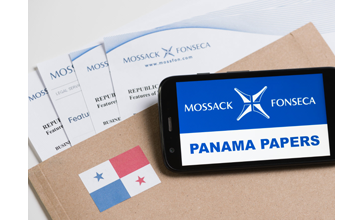What Have The Panama Papers Taught Us About Beneficial Ownership?
April 15th, 2016

One of the biggest document leaks of all time exposed the inner workings of how global companies, individuals and other entities utilize various corporate structures to move money throughout the world. This has been a contentious issue over the past few years for financial institutions and governments as they have tried to tackle the issue. Ultimately though, why do governments really want to expose these often hidden structures?
The first reason is tax evasion. Since the United States first published the Foreign Account Tax Compliance Act (“FATCA”) in 2010, there has been a movement to mimic this law throughout most countries around the world. FATCA was designed to ensure that American citizens who hold overseas assets are taxed in accordance with US tax laws. The Act covers funds derived from the sale of stocks and real estate, but also includes salary and bonuses earned overseas. This issue was then taken up by The Organisation for Economic Co-operation and Development (OECD) which published what is now called the Common Reporting Standard (CRS) and which more than 100 countries have signed. Essentially this standard outlines the sharing of financial account information on global expats back to their home countries.
In response to these initiatives, individuals and corporations began setting up ever more complex organization structures and holdings groups in order to shield where their monies were moving. This is where the financial institutions became more involved. Governments now require that financial institutions gather “ultimate beneficial ownership” information on entities they deal with. What this means is that financial institutions now must identify to a person, down to a minimum of 25% ownership, of a corporate holding structure. In this way, government regulators can begin to see who owns what and how this money is flowing, ostensibly to find the possible tax avoidance strategies utilized by these entities.
The second reason governments want to be involved is due to the funnelling of ill-gotten funds from criminal activities such as drug and human trafficking, bribery and corruption, and terrorism financing. As described above, individuals engaged in these activities have gotten more sophisticated in how they move their millions and billions around the world. The past decade has been spent on exposing the easier routes of funnelling dirty money globally, thus these criminals are now exploiting corporate structuring creation to move their monies around in more complex schemes.
While the structures that have been created are complex, they are perfectly legal. Therefore, we should be cognizant that a vast majority of work that law firm Mossack Fonseca did in Panama was also perfectly legal. There are many good reasons why people may need to create complex corporate structures, including to protect privacy, prevent kidnapping and similar needs. The ongoing legacy of Mossack Fonseca is revealing to governments and financial institutions not just how these corporate structuring practices occur, but how they have been manipulated to move money around the world.
Case in point, the FCA in the UK is now requesting the top-20 banks in the UK to report on if they have conducted business with Mossack Fonseca in the past. This is certainly the start of a more in-depth investigation that regulatory authorities will undertake to see how corporations used these structures set up by the law firm to move money around the world.
These recent events are likely only the tip of the iceberg in the exposing these and many other schemes over the coming 12-18 months. The last year has seen an acceleration of these types of events including the FIFA, Petrobras, and Unaoil controversies, among many. Ultimately though, these leaks do expose how government, financial institutions and technology providers can band together to identify dirty money moving through the system and punish the criminals who are sending these funds.




